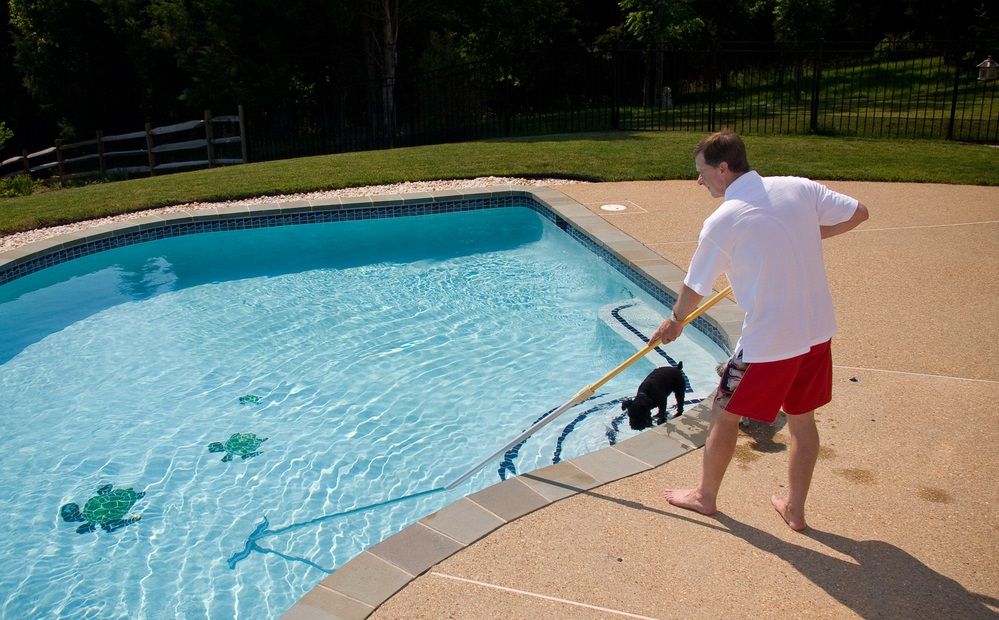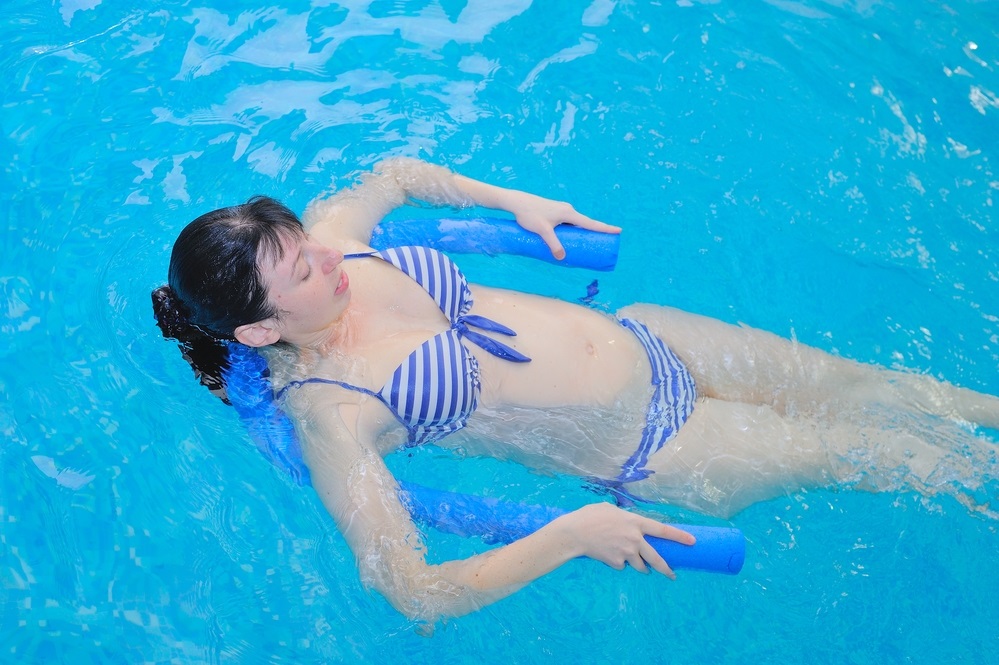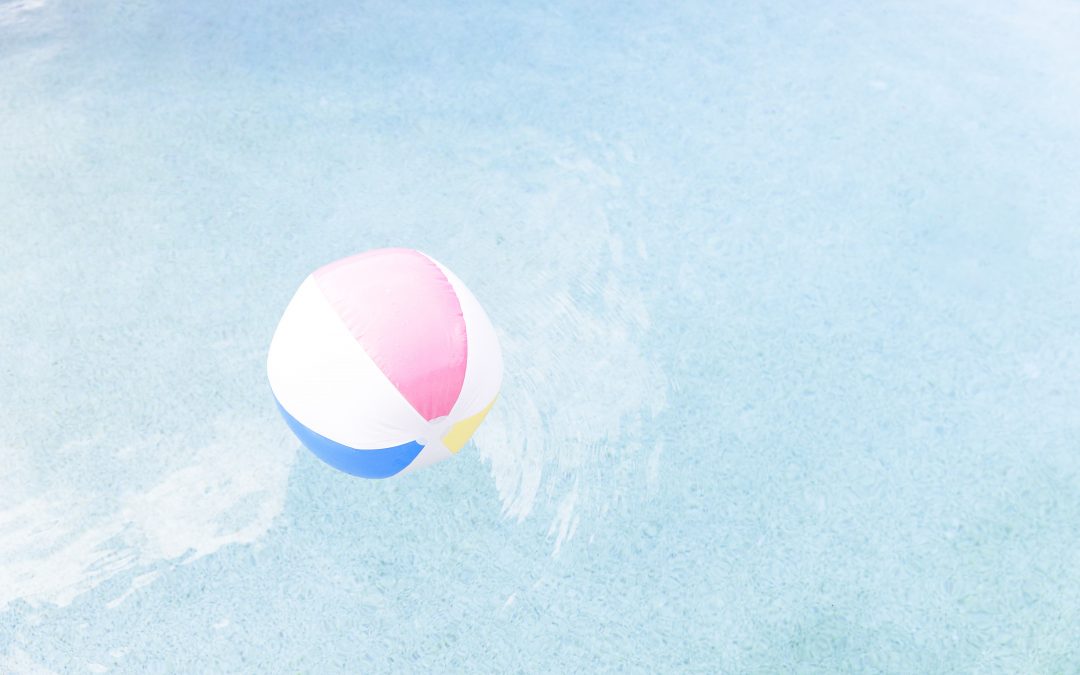Pool owners who have saltwater pools will likely tell you they are the best thing to ever happen to them and to swimming pools. The jury is still out for everyone on the benefits of saltwater pools. We want to break it down and give you some information on benefits and challenges of these pool types.
Salt water pools or freshwater pools?
 This is a highly debated question among pool owners. Those who own saltwater pools swear it provides a host of benefits and are well worth the investment. Those who have traditional freshwater (chlorine cleaned) pools state the disadvantages of saltwater outweigh the benefits of making a change.
This is a highly debated question among pool owners. Those who own saltwater pools swear it provides a host of benefits and are well worth the investment. Those who have traditional freshwater (chlorine cleaned) pools state the disadvantages of saltwater outweigh the benefits of making a change.
Before we go too far, you need to know that even a saltwater swimming pool does utilize some chlorine — not as much as a traditional pool, but there is chlorine nonetheless.
When you swim in a saltwater pool you will notice at first the lack of chlorine smell. A saltwater pool will not have liquid or tablet form chlorine added to the water, but this doesn’t mean it is 100% chlorine free.
Saltwater pool truth
These pools do contain very low levels of chlorine. The reason for that is because chlorine is extracted from the salt found in the pool’s water through the saltwater chlorine generator through a process called electrolysis.
Is It Time To Get A Saltwater Pool?
Why should you get, or consider getting or making a switch to a, saltwater pool?
- Gentle on the skin and eyes: Saltwater pools contain lower levels of chlorine and that will help eliminate skin and eye irritation. The salt in the pool water won’t sting your eyes since the amount of salt is only a fraction compared to what you find in sea water.
- Health benefits: Regularly bathing in saltwater provides health benefits. Salt is a natural exfoliant. Salt draws toxins from your body and encourages skin cell regeneration. Salt also helps your skin retain moisture. Swimming in saltwater may boost your immune system and improve blood circulation.
- Ease of maintenance. Saltwater swimming pools are considered easier to maintain than traditional pools. Saltwater systems goes into automatic pilot, so to speak, the moment it’s installed. As long as the generator is working properly, you’re good to go.
- How it works: When the water passes through the generator in the saltwater’s pool system, the generator breaks down enough salt to produce the chlorine needed to disinfect and clean the water. This means there is a continuous and steady supply of chlorine that flows in your pool’s water.
- Impervious to rain: Rain is an “enemy” of traditional pools. Saltwater pools are impervious to rain. Studies show rainwater, especially those in regions near bodies of salt water, contain trace amounts of salt. Although the amounts are not significant, it provides the pool’s chlorine generator a supply to convert into chlorine to help keep your pool water safe and clean.
Potential saltwater pool challenges
 Yes, we need to give the good and the bad about saltwater pools. Owning a saltwater pool does have drawbacks.
Yes, we need to give the good and the bad about saltwater pools. Owning a saltwater pool does have drawbacks.
- The cost: Building a saltwater pool costs more than a traditional/freshwater pool for two reasons. A. salt is highly corrosive. Make certain the materials used in the construction of the pool can withstand salt’s corrosive properties. B. saltwater pools are more complex to install. It requires experienced pool contractors and technicians to install the system.
- Utility bills: While saltwater pools save money on chemicals and supplies compared to traditional pools, and because you won’t have to regularly test the water, they do lead to significant increases in electricity bills. The chlorine generator in your saltwater pool’s system produces chlorine when the pool pump is running; this means you need to have the pool pump and chlorine generator running for long periods of time to make sure the chlorine in your pool’s water are within the right levels for it to keep it clean and safe for swimming. Combine this with running your pool’s heater, filter, and other components, this can make a huge impact on your home’s electric bill.
- Environmental hazards: Saltwater corrodes metals and other types of materials and can pose a detriment to the environment. Saltwater pools have been linked to soil and water salinity at alarming rates; this can negatively impact plants and animals as well as drinking water. Many cities have banned the construction of saltwater swimming pools.
Saltwater pool bottom line
There are benefits and drawbacks to saltwater pools, but there are benefits and drawbacks to traditional pools as well. There is no clear winner. It is ultimately your decision and only you know what’s best for your family. Only you know your budget for the pool project. As long as you’re informed and make a good decision, you will have a pool you enjoy for decades.

